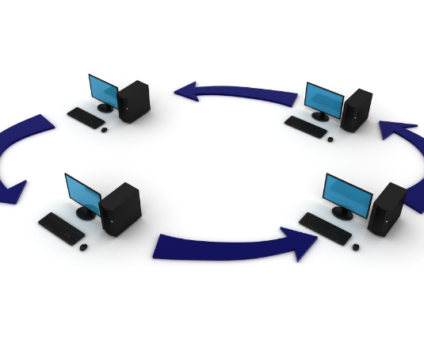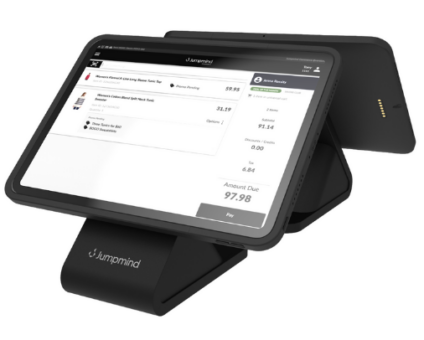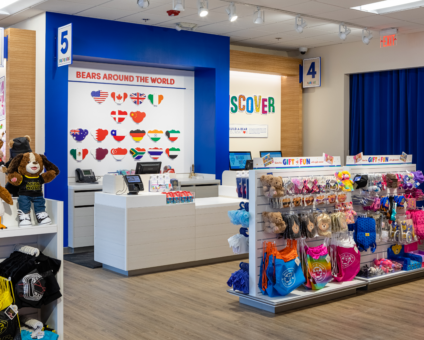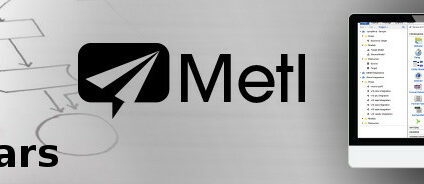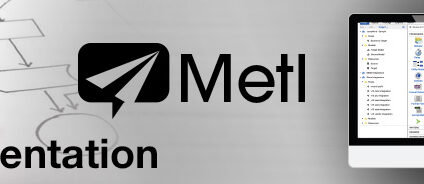Retailers are constantly looking for new ways to generate revenue and stay competitive. One strategy …
![]()
Cloud-native POS platform for seamless omnichannel customer experience.
![]()
A single hub for all promotions campaigns.
- Omnichannel ExperienceCreate seamless customer experiences
- Device IndependencePOS agnostic to form factor or operating system
- Self-CheckoutDo more with fewer associates
- Mobile StoreLeverage POS from anywhere
- POS on the GoEnable associates to sell outside of the store
- Unified PromotionsStreamline and simplify promotion workflows
- CX ConnectAllow customers to engage with POS during checkout
- Composable CommerceCreate the store experience you want
![]()
The most advanced synchronization solution for databases and file systems.
![]()
Data configuration and batch automation across different disparate systems and vendors.
-
Data Replication
- Multi-tier DistributionReplicate thousands of remote locations
- Cloud Database ReplicationCapture live changes from on-premise to the cloud
- High Availability and Load BalancingEnsure 24/7 access to data and scale efficiently with demand
- Analytics and ReportingCapture the whole picture with real-time reporting
- Multi-masterMaintain consistency of data in a peer to peer setup
- Data WarehouseReplicate live and historical data to a warehouse
- MigrationsConduct live data migration with no downtime
-
-
Data Integration
- Master Data ManagementChanges propagate across the entire system, allowing you to maintain a centralized view of all parts of your core business entities.
- Application IntegrationReduce dependencies, complexity, and risk to build a high-performance, data-driven application.
- Web ServicesIntegrate multiple systems using web services or build a business application using a service-oriented architecture.
- Data WarehouseIntegrate disparate data from multiple systems so you can transform data for better business intelligence and reporting.
- Data MigrationConduct live data migration during critical server replacements, storage upgrades, and data center relocations—with no downtime.
- ImplementationIntegration consultants help design, develop, and deploy an implementation of our products.
- DevelopmentThe product developers can add features, enhance existing functionality or build support for new platforms.
- TrainingEngage our experienced training resources to gain in-house knowledge and expertise on Jumpmind products.
- SupportLeverage product engineers to resolve issues, fix defects and provide updates or patches.
- Proof of ConceptDetermine the feasibility of implementing our products and get answers to your questions quickly.
Clienteling isn’t a new theory. It can be traced back hundreds of years when shopkeepers …
BOPIS, BORIS, and Curbside Pickup offer consumers and retailers the best of both worlds. …
View all Blog Posts
The SymmetricDS product can synchronize data between over forty different database platforms with out of …
Compare and Repair for SymmetricDS Pro can compare two databases, report on the differences, and …
Mobile replication with Android edge devices in near real time to an on-premise or cloud …
View all Blog Posts
Jumpmind President and CEO Joe Corbin to Lead Panel on Agility at Scale and Digitalizing …
Retail Technology Leader Jumpmind Brings Newfound Interactive and Personalized Digital Engagement to Inspire Shoppers at …
Retail Technology Leader Jumpmind Provides Enhanced Experiential Point of Sale and In-Store Engagement for Build-A-Bear Workshop …
View all Blog Posts
![]()
Cloud-native POS platform for seamless omnichannel customer experience.
![]()
A single hub for all promotions campaigns.
![]()
The most advanced synchronization solution for databases and file systems.
![]()
Data configuration and batch automation across different disparate systems and vendors.
-
Data Replication
-
-
Data Integration
-
Retail Retail trends, technology, and enhancing the customer experience
-
Data Thoughts on data matters, dialects, performance, and security
-
Case Studies How Jumpmind impacts the businesses of our clients
-
Videos & Webinars Watch on demand demos, reviews, and tours of our products
-
Company News Get the scoop on Jumpmind's growth and impact
View all Blog Posts
Features


Easy Installation and Configuration
Metl is extremely light weight and can be downloaded, installed, and running within minutes. There is no heavy infrastructure need, and since Metl is 100% web-based, no client installs are necessary. Simply download the .war file and either deploy it under an existing web container like tomcat or jboss, or run the executable .war file stand-alone using the embedded Jetty servlet container. Once Metl is running, use any standard web browser to begin configuring your integrations.
![]()
Projects
Metl allows integrations to be grouped or packaged into one or more projects. Projects are a means to logically group integrations together in some logical way, such as all integrations in or out of a given system. Projects can be imported and exported, and the exported configuration version controlled with your tool of choice.

Models
Data integrated with Metl can be structured or unstructured data. When dealing with structured data, the structured data can be defined by modeling it. Metl models allow you to define relational or hierarchical models that describe your data.

Resources
Define shared resources where data is retrieved from or written to. Resources can include file systems, databases, ftp, sftp, scp and web/http(s). Once defined these resources can be shared across integrations (flows) and configured by environment (dev, test, staging, prod).

Flows
Each integration is written as a flow. A flow defines the input to be read, the processing rules to be applied and the output to be written. Flows are a graphical set of instructions for how data is integrated from a source system to a target system.

Components
Metl includes prepackaged components for common tasks including reading, processing and writing of data. Reader components include components to read data from files, databases and web services. Processors include parsers, formatters, mappers, routers and many more. Writers allow writing to files, databases, and web services. Out of the box, Metl provides components to handle the majority of integration tasks.

Graphical User Interface
Use graphical drag-n-drop tools to define how data moves from a source system to one or more target systems. Simply drag pre-packaged components from the palette onto a flow, connect the components

Extensibility
For unique, specialized needs, custom components can be created and utilized by the Metl application. Simply implement a java interface, jar it up, deploy it with Metl and use the new customer component in any of your flows.



